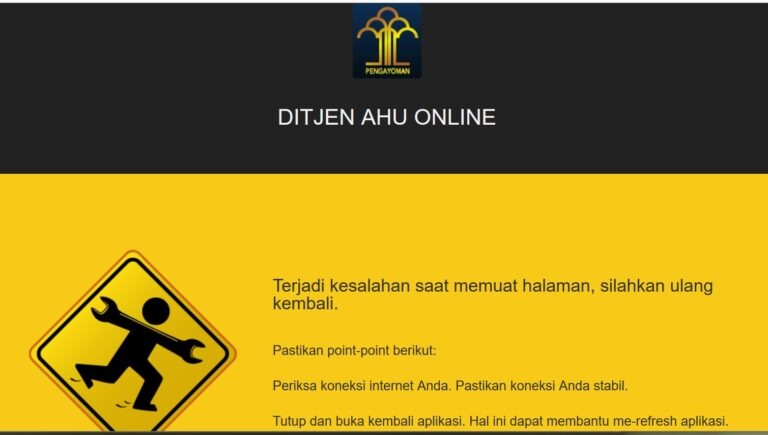Running a business in Indonesia comes with its own set of challenges, and tax compliance is undoubtedly one of the most critical. A recent case in East Java serves as a reminder of the potential consequences for tax evasion. A businessman was apprehended for allegedly neglecting to register his business and evading significant tax payments.
East Java Businessman Faces Tax Fraud Charges
Ronny Setiawan (45) was arrested by the Public Prosecutor’s Office, East Java in mid June 2024. The businessman from Madiun City was arrested after the Civil Service Investigator for East Java Directorate General of Taxes handed over the evidence in a criminal tax case.
“The businessman is strongly suspected of having committed a criminal offense in taxation by deliberately not reporting his business to be registered as a taxable entrepreneur,” said the Head of the Investigation Team, Nyoman Ardina.
Ronny is accused of failing to register his business as a taxable entity and neglecting to submit tax returns for value added tax (VAT) from January 2016 to December 2017. Additionally, he is suspected of manipulating his annual tax reports between 2015 and 2017.
These alleged actions resulted in an estimated loss of IDR 2.4 billion to the Indonesian government, including IDR 726 million in personal income tax and IDR 1.7 billion in VAT.
“This criminal prosecution is a last resort taken when taxpayers fail to fulfill their tax obligations through self-assessment,” explained Nyoman Ardina.
Ronny Setiawan faces charges under Law No. 7/2021 regarding Harmonization of Tax Regulations. If convicted, he could be sentenced to up to six years in prison and fined four times the amount of evaded taxes.
3 Obligations for Taxable Entrepreneurs
The case of Ronny Setiawan underlines the importance of tax compliance for businesses. According to the Regulation of Indonesia’s Minister of Finance in 2013, a taxable entrepreneur is an individual or a company with annual gross revenue of more than IDR 4,8 billion.
It means, entrepreneurs who have gross income of less than IDR 4.8 billion per year are not mandatory to register as taxable entrepreneurs. Once you’re officially confirmed as taxable entrepreneurs in Indonesia, there are at least 3 specific obligations for you to fulfill:
1. To collect Value Added Tax (VAT) on every delivery of taxable goods or taxable services
2. Issuing tax invoices (except for retail sales)
3. Deposit the collected VAT and report the VAT Return
Non-compliance with these rules can lead to severe penalties, as seen in Ronny Setiawan’s case. In Indonesian tax regulations, there are two types of sanctions for tax violations, administrative and criminal sanctions.
How to Register as Taxable Entrepreneurs?
To formalize their status as taxable entrepreneurs, businesses in Indonesia must undergo a registration process. This involves submitting a comprehensive set of documents to the tax authorities.
The specific requirements may vary slightly depending on the business structure and nature of operations. However, these are core documents commonly requested:
1. Completed application form for Confirmation of Taxable Entrepreneurs.
2. A stamped statement letter from management explaining the type and business activities carried out, including the business/office address.
3. Copy of the company’s deed of establishment or deed of amendment.
4. Copy of the company’s Tax ID.
5. Copy of personal Tax ID and applicant’s valid ID for Indonesian citizens, or passport/residence permit for foreigners.
6. Copy of the Annual Tax Return (SPT) for the last 2 years for the company.
7. Copy of the Annual Tax Return (SPT) for the last 2 years for all management.
8. Copy of the lease agreement or building ownership certificate (according to the ownership status of the business location as indicated in the form).
9. Power of Attorney with a stamp if the application is submitted by someone other than the applicant.
These documents serve as verification of the business’s identity, legal standing, and financial health. By submitting accurate and complete documentation, businesses can streamline the registration process and avoid potential delays or complications.
Unfortunately, Taxable Entrepreneur registration cannot be done online. Delivery of all required documents can be done via courier or postal services or applicants can visit the nearest tax office. The required documents above will be verified and surveyed by tax officers within 3-5 days after submission. If the application is approved, you can get the Taxable Entrepreneur Confirmation Letter at the tax office where you submitted the registration.
Plan Your Tax with Seven Stones Indonesia
Indonesia’s strong economy depends on businesses doing well. To keep the economy growing and make sure everyone benefits, it’s important that business owners pay their taxes. Making taxes mandatory for entrepreneurs is a key for better infrastructure, to fund essential public services, and create a level playing field for businesses of all sizes.
However, Seven Stones Indonesia understand that tax regulations are complicated and subject to change. That’s why we offer comprehensive tax and accounting services for your business continuity and to maximize profitability. Seeking professional advice for tax assistance is highly recommended. Contact Seven Stones Indonesia for tax registration, tax planning, consultation, and timely reporting to safeguard your business’s financial health. We empower businesses to achieve their full potential by optimizing tax efficiency.

















